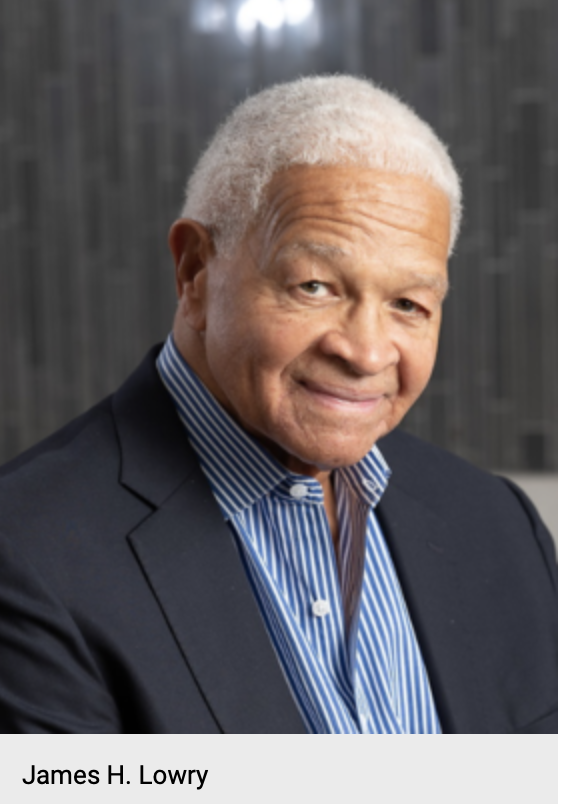Small businesses are critical, but economic parity requires building midsize to large businesses.
Original Article Post Date: November 12, 2021 06:00 AM
JAMES H. LOWRY
The United States, its institutions, government policies, infrastructure, and economic and political stability have never been challenged as they are today. The COVID-19 pandemic has forced governments and major corporations to quickly rethink how financial and human resources should be allocated. Accepting the dramatic impact COVID-19 has had on minority business enterprises, or MBEs, as well as the impact of the killing of George Floyd, major corporations have made large commitments to revitalize MBE development. I witnessed a similar response to the riots of the late 1960s. Unfortunately, the goals of many corporate programs announced in the ’60s were not achieved, and the problems besetting MBEs and minority communities remain the same.
Following the ambitious plans of the Business Roundtable and, locally, the Civic Committee of the Commercial Club of Chicago, I am optimistic we will achieve different results this time around. I say that for these reasons:
- CEOs across the country are personally involved and are investing many hours to ensure their programs will be successful.
- Corporations are allocating billions of dollars—not just millions.
- Minority business leaders like Robert F. Smith, John Rogers, Mellody Hobson, Henry Cisneros and others are investing time and resources to make a difference.
- There is a much larger cadre of capable and well-trained MBEs and minority founders able to take advantage of the current opportunities.
- There is more mainstream acceptance that racial injustice and the growing wealth gap are not beneficial for the free enterprise system.
To avoid the mistakes of the ’60s, however, corporate America will have to approach the challenges with a business perspective. Translated, MBE development is a “business” initiative, not a “charity” event. To ensure the billions of dollars allocated are leveraged to the fullest, CEOs should:

- Assign their top executives, irrespective of race, to issues proactively rather than reactively.
- Thoroughly vet the organizations soliciting corporate support and investments.
- Work collectively and effectively in the ecosystem and communities in which they reside and operate, resisting historic silo efforts.
- Establish internal and external performance measures.
- Accept the challenges and givens of endeavoring to grow MBEs and impact communities.
Reflecting on my 40 years of operating in the field of MBE development, I believe the last recommendation is most important. Too often, corporations have been well intentioned but unrealistic on what components drive change. In addition, they have been unable to accept that all MBEs are not the same, size does matter and the key to success in any business is the CEO.
I strongly believe small businesses are the backbone of the U.S. free enterprise system—but we will never reach economic parity solely focusing on small business. According to the U.S. Department of Commerce:
- There are 7,952,380 minority firms in the U.S., compared with 18,987,911 nonminority firms.
- Average minority firms’ gross revenue is $173,552, compared with $552,075 for nonminority firms.
- There are 9.2 million firms in the U.S., but only 1.02 million have paid employees.
The real focus should be on minority-owned midsize to large businesses. These companies will be able to provide more jobs and viable subcontractor opportunities and help elevate the entire U.S. economic system. Don’t get me wrong. I do believe small businesses are critical to our economy. But if we hope to accelerate lasting economic growth in our communities, we must create large, billion- and multibillion-dollar companies.
We must also invest in minority founders who might be the new wave of disrupters. These disrupters are changing industries, economies and the world. This will position MBEs in global growth markets; facilitate joint ventures with minority and nonminority businesses; create spinoff opportunities for high-performing minority executives who have paid their dues; urge large banks, foundations and individuals to invest in existing and high-growth MBEs; and help train and mentor the next generation of Black and Brown CEOs, board members and growth-minded entrepreneurs.
James H. Lowry, senior adviser to the Boston Consulting Group, is also a strategic adviser and nationally recognized workforce and supplier diversity expert and pioneer.
Article Courtesy of CRAIN’S CHICAGO BUSINESS: https://www.chicagobusiness.com/equity/minority-entrepreneurs-must-make-growth-priority










